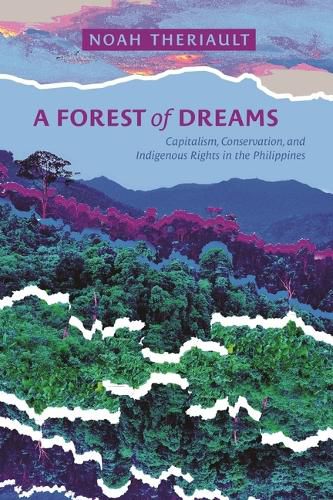Readings Newsletter
Become a Readings Member to make your shopping experience even easier.
Sign in or sign up for free!
You’re not far away from qualifying for FREE standard shipping within Australia
You’ve qualified for FREE standard shipping within Australia
The cart is loading…






After the fall of the Marcos regime in 1986, the Philippines became the first country in Asia to codify Indigenous rights. This hard-fought reform aimed to protect the ancestral lands of the archipelago's remaining Indigenous communities. Since then, these communities have become increasingly embroiled in resource politics and many have found that claiming their rights does as much to facilitate their dispossession as it does to prevent it. In A Forest of Dreams, Noah Theriault examines the entanglement of capitalism, conservation, and indigeneity in southern Palawan, a place widely coveted as the Philippines's "last frontier." Drawing on a decade of research, Theriault reveals how bureaucrats, investors, and conservationists impose their own designs on Indigenous rights as they vie for land, labor, and legitimacy. But he also asks how those designs collide with the dreams--both figurative and literal--of Indigenous persons themselves. What results is a story of unexpected agency and contingency, in which humans, wildlife, and powerful forest beings complicate prevailing theories of social and environmental change.
A Forest of Dreams traces how Palawan families understand and influence the powerful forces that have enclosed them within an ancestral domain, a protected landscape, and an expanding plantation zone. Each chapter opens with a memorable historical or ethnographic episode: Magellan's fateful battle with Lapu-Lapu; the primitivist visions of Charles Lindbergh; a screeching civet and truckloads of tree-planting college students; oneiric owl sorcery; and a bitter dispute over almaciga resin. Informed by Palawan analyses of their own history, Theriault argues that efforts to "save the last frontier" have reinforced, rather than disrupted, long-term processes of colonization and capitalist expansion. Yet, he also shows how studies of the environment, development, and human rights in Southeast Asia can better account for the critical agency of those whose lands are at stake.
$9.00 standard shipping within Australia
FREE standard shipping within Australia for orders over $100.00
Express & International shipping calculated at checkout
After the fall of the Marcos regime in 1986, the Philippines became the first country in Asia to codify Indigenous rights. This hard-fought reform aimed to protect the ancestral lands of the archipelago's remaining Indigenous communities. Since then, these communities have become increasingly embroiled in resource politics and many have found that claiming their rights does as much to facilitate their dispossession as it does to prevent it. In A Forest of Dreams, Noah Theriault examines the entanglement of capitalism, conservation, and indigeneity in southern Palawan, a place widely coveted as the Philippines's "last frontier." Drawing on a decade of research, Theriault reveals how bureaucrats, investors, and conservationists impose their own designs on Indigenous rights as they vie for land, labor, and legitimacy. But he also asks how those designs collide with the dreams--both figurative and literal--of Indigenous persons themselves. What results is a story of unexpected agency and contingency, in which humans, wildlife, and powerful forest beings complicate prevailing theories of social and environmental change.
A Forest of Dreams traces how Palawan families understand and influence the powerful forces that have enclosed them within an ancestral domain, a protected landscape, and an expanding plantation zone. Each chapter opens with a memorable historical or ethnographic episode: Magellan's fateful battle with Lapu-Lapu; the primitivist visions of Charles Lindbergh; a screeching civet and truckloads of tree-planting college students; oneiric owl sorcery; and a bitter dispute over almaciga resin. Informed by Palawan analyses of their own history, Theriault argues that efforts to "save the last frontier" have reinforced, rather than disrupted, long-term processes of colonization and capitalist expansion. Yet, he also shows how studies of the environment, development, and human rights in Southeast Asia can better account for the critical agency of those whose lands are at stake.